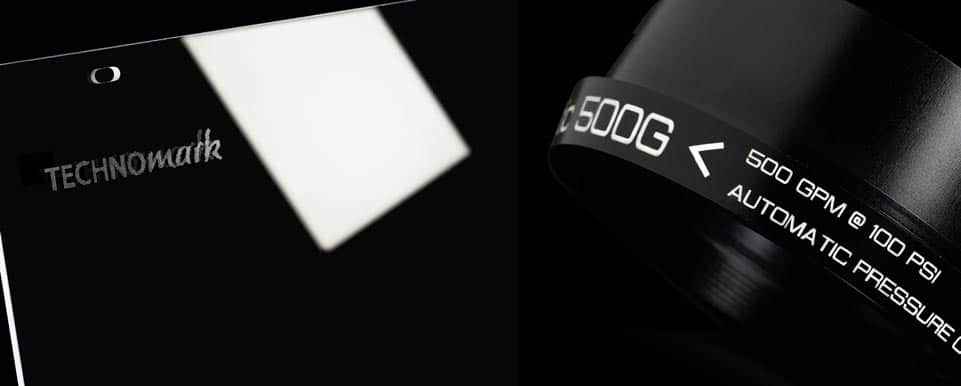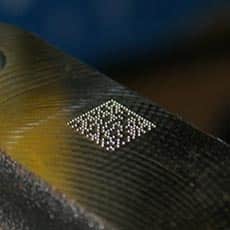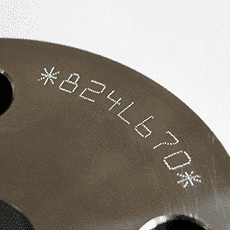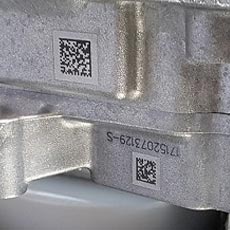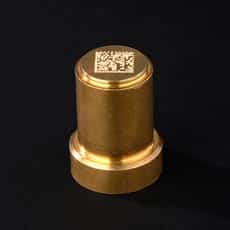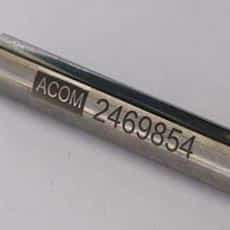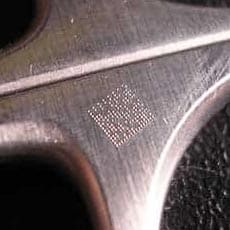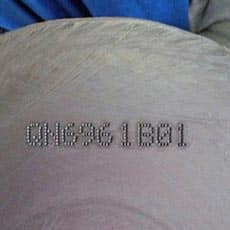Technomark > Materials to mark
The most common materials used for industrial marking are:
- Metals such as stainless steel, aluminum, brass, copper and titanium
- Plastics, such as polyamide, polycarbonate and ABS
- Rubbers, such as natural and synthetic rubber
- Composite materials, such as fiberglass, carbon and kevlar
It is important to note that the properties of materials can vary depending on their surface treatment, composition and overall condition. It is therefore important to test and verify the marking results on materials before using them for industrial applications.
What materials can I mark?
How to know if it is possible to mark a material?
There are several parameters to consider when determining whether a material can be permanently marked:
- Chemical composition: some materials cannot be marked because they do not respond to commonly used marking processes.
- Hardness: some materials are too hard to be marked by certain techniques, micro-percussion solutions can mark materials up to 63HRC.
- Breaking limit: in the case of micro-percussion marking, the breaking limit must be taken into account to know if the material is resistant enough to the impact of the stylus.
- Surface: some materials will have better marking results depending on the surface (treatment, smooth surface, …)
- Temperature: some materials cannot be marked if they are exposed to high temperatures.
It is important to test different marking techniques and adapt them to the properties of the material before choosing the most appropriate technique for a specific application. It is also advisable to consult with marking professionals for advice on the best marking techniques for a given material.





